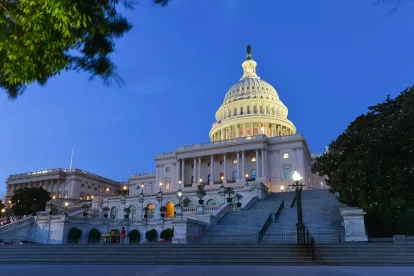The penalties are potentially astronomical for entities with FCA exposure.
In addition to treble damages, the False Claims Act (FCA) provides for mandatory penalties for each false claim submitted “of not less than $5,000 and not more than $10,000, as adjusted by the Federal Civil Penalties Inflation Adjustment Act of 1990.”[1] Presently, adjusted penalties under the FCA range from $5,500 to $11,000. Effective August 1, 2016, however, that range will nearly double, with the mandatory minimum penalty increasing from $5,500 to $10,781 and the mandatory maximum penalty increasing from $11,000 to $21,563.
The increased penalties will apply for claims or statements made on or after August 1, 2016 and before January 1, 2017. For claims or statements made on or after January 1, 2017, the range for penalties will be the larger of either (i) the amounts specified for the previous year (i.e., from $10,781 to $21,563) or (ii) the amounts from the previous year further adjusted for inflation.
The adjustment was announced in an interim final rule published without notice or comment on May 2, 2016 by the US Railroad Retirement Board.[2] Penalties have not been adjusted for inflation since 1996, when they were only modestly increased from $5,000 to $5,500 and $10,000 to $11,000, respectively. The 1996 adjustment was modest by necessity, as adjustments were capped at that time by statute to 10% of the original penalty amount or range. Significantly, that statutory cap is no longer in effect. Under the Bipartisan Budget Act of 2015, Public Law 114-74, the new limitation is 250% of the pre-adjustment penalty amount or range.
Because the recently announced adjustment is based on a 215% change in the consumer price index for all urban consumers (CPI-U) between October 1986 and October 2015, it does not reach the new limitation. However, the increase is nonetheless significant for entities with FCA exposure.
Mandatory penalties are potentially astronomical for entities that may submit hundreds of thousands, if not millions, of claims to the government for payment over relatively short periods of time. That already extreme exposure will now be almost twice as much. However, civil penalties under the FCA that are disproportionate to the gravity of the underlying offense have been successfully challenged on the basis that they violate the Excessive Fines Clause of the Eighth Amendment.[3]
[1] 31 U.S.C. §3729.
[2] 81 Fed. Reg. 26,127 (May 2, 2016).
[3] See e.g. U.S. ex re. Smith v. Gilbert Realty Co., Inc., 840 F. Supp. 71 (E.D. Mich. 1993) (holding that penalty above $35,000 would be excessive under the Eighth Amendment in light of the underlying conduct); see also U.S. ex rel Bunk v. Gosselin World Wide Moving, N.V., 741 F.3d 390 (4th Cir.) (permitting relator to accept $24 million notwithstanding statutory minimum to bring judgment within the confines of the Eighth Amendment).







 />i
/>i

